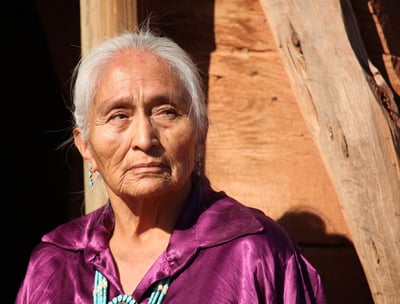FORCE's eXamining the Relevance of Articles for You (XRAY) program looks behind the headlines of cancer news to help you understand what the research means for you.
XRAY is a reliable source of hereditary cancer research-related news and information.
Learn more about the XRAY program
Categories Racial and Ethnic Differences
Relevance: Medium-High


Strength of Science: Medium-High


Research Timeline: Post Approval


Study : Genes, genetic counseling and disparities in endometrial cancer
Relevance: Medium-High


Strength of Science: Medium-High


Research Timeline: Post Approval


Most relevant for: People diagnosed with endometrial cancer
Endometrial cancer is on the rise, and it can run in families. Genetic counseling has benefits for people with cancer and their family members. However, Black women with endometrial cancer more often have worse outcomes than white women. Black women with endometrial cancer who test positive for an inherited mutation are less likely to see a genetic counselor. Given these disparities, Black women would benefit from better access to and referrals for genetic counseling. (Posted 12/14/23)
Este artículo está disponible en español.
Read More
Relevance: Medium-High


Strength of Science: Medium-High


Study : Systemic racism may delay breast biopsy for Black and Asian people
Relevance: Medium-High


Strength of Science: Medium-High


Most relevant for: People who have had an abnormal mammogram
Black and Asian people are more likely to have to wait more than 90 days between an abnormal mammogram and a biopsy compared to white people. After accounting for other factors, the authors conclude that these disparities may be due to systemic racism. (Posted 3/8/23)
Este artículo está disponible en español.
Read More
Topic : Cancer disparities in American Indian and Alaska Native populations
Most relevant for: Americans Indians and Alaska Natives
The American Cancer Society released a special section in their 2022 Cancer Facts & Figures report that discussed cancer disparities in American Indian and Alaska Native populations in the United States. This review highlights the special section’s main points, including disparities in cancer screening, diagnosis and survival rates in native communities, as well as factors contributing to those disparities. (Posted 12/20/22)
Este artículo está disponible en español.
Read More
Relevance: Medium-High


Strength of Science: Medium-High


Study : Expanding Medicaid reduced racial disparities among people with metastatic breast cancer
Relevance: Medium-High


Strength of Science: Medium-High


Most relevant for: People diagnosed with de novo stage 4 breast cancer and people who live in states that have not expanded Medicaid.
The Affordable Care Act allowed more people to access insurance through Medicaid. This study found the expansion of care improved survival and decreased mortality among people of color with de novo stage 4 (stage 4 at the time of initial diagnosis) breast cancer. (Posted 9/13/2022). Este artículo está disponible en español.
Read More
Study : Clinical trial eligibility excludes more Black than white patients
Most relevant for: People with pancreatic cancer who are interested in participating in a clinical trial
Eligibility criteria stating who can and cannot participate in clinical trials are necessary. However, traditional eligibility criteria have led to the exclusion of Black people in pancreatic cancer clinical trials. This exclusion restricts patient access to new drugs and limits the ability to generalize results to the population of patients who will ultimately use the drug. Revising eligibility criteria, especially for patients with pancreatic cancer, may improve clinical trial access among Black people. (Posted 8/23/22)
Este artículo está disponible en español.
Read More
Article : Rise in endometrial cancer affects Black women more than white women
Most relevant for: People concerned about their risk for endometrial cancer
The New York Times calls attention to the increase in a type of cancer of the uterus called endometrial cancer and how it disproportionately affects Black women. The article provides useful information about endometrial cancer while raising awareness of a significant and growing health disparity. (Posted 8/16/22)
Este artículo está disponible en español.
Read More
Relevance: Medium-High


Strength of Science: Medium-High


Research Timeline: Post Approval


Study : New tool to predict breast cancer risk for Black women
Relevance: Medium-High


Strength of Science: Medium-High


Research Timeline: Post Approval


Most relevant for: Black women in the U.S.
An important part of making decisions about breast cancer screening and prevention is knowing your breast cancer risk. Specific tools are used to identify people who would benefit from early and/or additional screening and chemoprevention or those who would most benefit from genetic counseling and testing. Because these tools were developed using data mostly from white women, they are unable to predict cancer risk as well for Black women. To begin to address these gaps, researchers developed a new tool specifically designed to predict breast cancer risk for Black women. This tool has been shown to work well, especially for younger Black women. (posted 3/22/2022) Este artículo está disponible en español.
Read More
Relevance: High


Strength of Science: Medium-High


Research Timeline: Post Approval


Study : The chance of a second breast cancer is higher among some Hawai'ian women
Relevance: High


Strength of Science: Medium-High


Research Timeline: Post Approval


Most relevant for: women of Hawai’ian, Filipino or Asian American ancestry.
Women diagnosed with ductal carcinoma in situ (DCIS), an early form of breast cancer, are more likely to have a second breast cancer diagnosis if they are of Native Hawai'ian, Filipino or Japanese ancestry than women of other racial or ethnic groups. (posted 3/15/22)
Este artículo está disponible en español.
Read More
Relevance: High


Strength of Science: High


Research Timeline: Post Approval


Study : Frequency of inherited mutations linked to breast cancer are similar in Black and white women
Relevance: High


Strength of Science: High


Research Timeline: Post Approval


Most relevant for: Non-Hispanic Black and white women with breast cancer
The CARRIERS study looked at the rate of inherited mutations in women with and without breast cancer. In an extension of the CARRIERS study, researchers found no difference in the frequency of inherited mutations in breast cancer genes among Black and white women with breast cancer. A few individual genes differed in frequency: BRCA2 and PALB2 mutations were seen more often in Black women, while CHEK2 mutations were seen less often. Researchers concluded that race should not be used to determine who is referred for genetic testing. (posted 8/13/21)
Este artículo está disponible en español.
Read More
Update : Breast cancer disparities in Black Americans
Most relevant for: Black women in the US
The American Association for Cancer Research (AACR) released a 2020 report about cancer disparities among racial and ethnic groups in the United States. In this review, we highlight findings on the burden of breast cancer in Black women. (posted 8/5/21)
Este artículo está disponible en español.
Read More